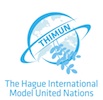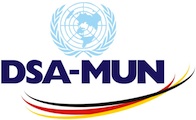All Committees day 3
Action Paper I
Cities of today – Cities of tomorrow
This was the third day of the MUN-Conference. The participants found solutions for the environmental, infrastructural and social problems in modern cities.
As they said, the people should be responsible and show their respect to the environment by creating green roofs, recycling, reusing materials, using biofuels and renewable energy sources. As for the infrastructure, governments have the greatest responsibility. The politicians should organize the planning of the landscape and the built of green areas and wider streets. They should also encourage decentralization. The social problems discussed were poverty, criminality and drug addiction. To confront the poverty governments should create new job opportunities and in order to decrease the criminality rate they should impose severe penalties and educate people. Furthermore, politicians should not only promote the medical care, and inform the citizens about the consequences of drug consumption but also “contribute” to the promotion of sports facilities to keep people away from bad habits such as addiction. According to the delegates the cities of tomorrow should be built by using a more effective plan.
Marita Boulougouri
Action Paper II
Obesity and Malnutrition
Today the participants found during the debate solutions to the problem of obesity. Firstly, parents and children should be well informed about the aspects/ problem of obesity. Then, governments should organize campaigns, produce pertinent advertisements and put a higher tax on unhealthy food. If the person is already overweight, he/she should visit a specialist doctor and follow a diet. Only when nothing else can be done, should the person undergo surgery.
Marita Boulougouri
Disarmament and International Security Committee
By the time the press walked into the meeting room, the delegates had already debated and voted upon their resolutions. They were cool and made jokes with the chair and co chair. The atmosphere was great and we felt immediately at ease. In the end the entire committee voted for the funny awards and everyone was laughing.
Athina Gaitanou
Peny Galanou
Eva Kapou
Social and Humanitarian Committee
The third day in the Social and Humanitarian Committee had started with the discussion of the last resolution. The delegate of Argentina took the floor, suggested that personal freedom should be protected and mentioned that everyone has the right to religious tolerance. During the debate procedure the representative of Japan explained the need for churches to be created. According to the very kind chair who was willing to help us, the committee had discussed about 7 resolutions in general out of which 4 passed.
Eva Kapou
Peny Galanou
Athina Gaitanou
Environmental and Cultural Committee
On the last day of MUN, the Environmental and Cultural committee discussed the relentless pursuit of extreme energy and the promotion of ecotourism for poverty eradication and environment protection. The Chair told us too, which resolutions passed and which of them failed. First of all, 6 resolutions had passed and only 1failed. Those, which passed were about extreme energy, two concerning the acceptance of the world’s indigenous people and the other one was on ecotourism for poverty eradication and environmental protection. After that, all the GA committees entered a common room. There the Chair of Enviromental and Cultural committee referred to the resolution concerning the relentless pursuit of extreme energy submitted by Belgium. The delegation of Belgium took the floor and explained the reasons why his country supported this resolution. Additionally, he recommended decentralization of production in order to reduce the necessity of transport and thereby unnecessary energy consumption. Moreover, Croatia mentioned three main points referring to that issue. Delegations from other countries took the floor too, including Turkey which stated that this resolution was not referring to a large scale. Finally each delegate of the Environmental and Cultural Committee voted for the funny awards.
By Marina Mattheou
G.A. Social and Humanitarian Committee
The next resolution to be discussed in the General Assembly, after the one from the Environmental and Cultural Committee that was debated and voted upon, was the one coming from the Social and Humanitarian Committee on the topic: “The elimination of all forms of intolerance and discrimination based on religion or belief”. There was a debate of half an hour. The first delegate who took the floor was the one of Malta, who was in favor of this resolution. The majority of the other delegates were against this resolution. Moreover the delegation of Australia delivered a speech mentioning some good points and underlined the fact that religion is an important aspect in peoples’ life. In the end the resolution failed.
By Marina Mattheou
International Court of Justice
Serbia vs Croatia
The conflict between Serbia and Croatia reached its zenith in the middle of 1992. At the beginning Serbia filed a law suit against Croatia with the accusation of killing Serbs in the Storm Operation. During the Bosnian war, Serbia was accused by Croatia for the same reason. The second topic came to light when the ICJ gained jurisdiction over the first case. In 1999 Serbian property was destroyed by Croatian forces. As a result, war was eminent.
By Loukas Melissopoulos and Marina Mattheou
Political Committee
It is the last day of the MUN and the political committee was debating on the issue of securing borders against migrants and the territorial disputes in the Arctic. As we are informed 3 of the resolutions have passed. The one is referring to the question of Sudan and South Sudan, which had also been chosen for the GA and the second one was the territorial disputes in the Arctic. Taking into consideration the fact that the political committee belongs to the GA, all its members were gathered in a specific room, where all the GA members were together. As we have already mentioned the resolution passed for being discussed in the GA was the question of Sudan and South Sudan, main-submitted by India. All the countries were in favor of this resolution except Sudan, which was against. To sum up, it’s important for such a fact to be pointed out, considering that the majority agreed with the content of this resolution.
Marina Mattheou and Loukas Melissopoulos



